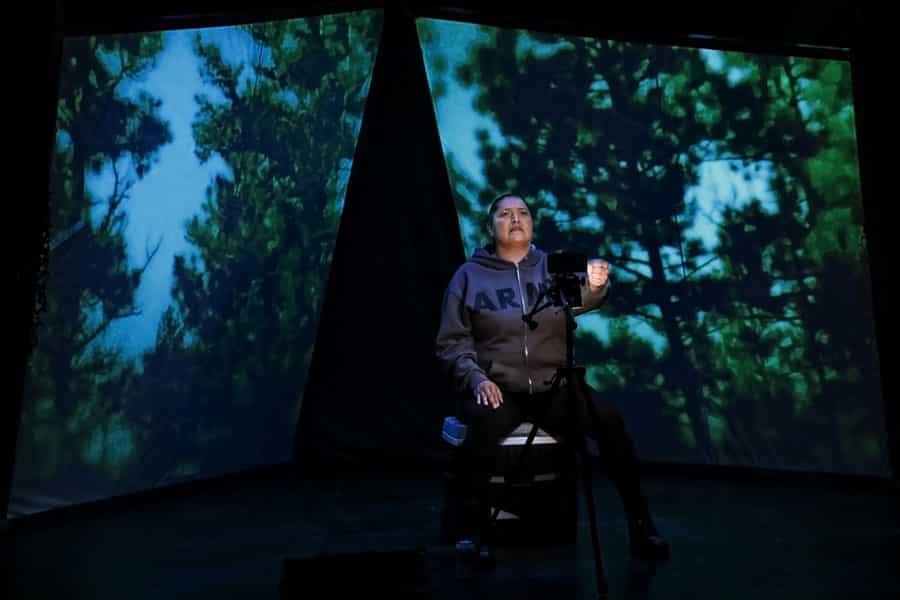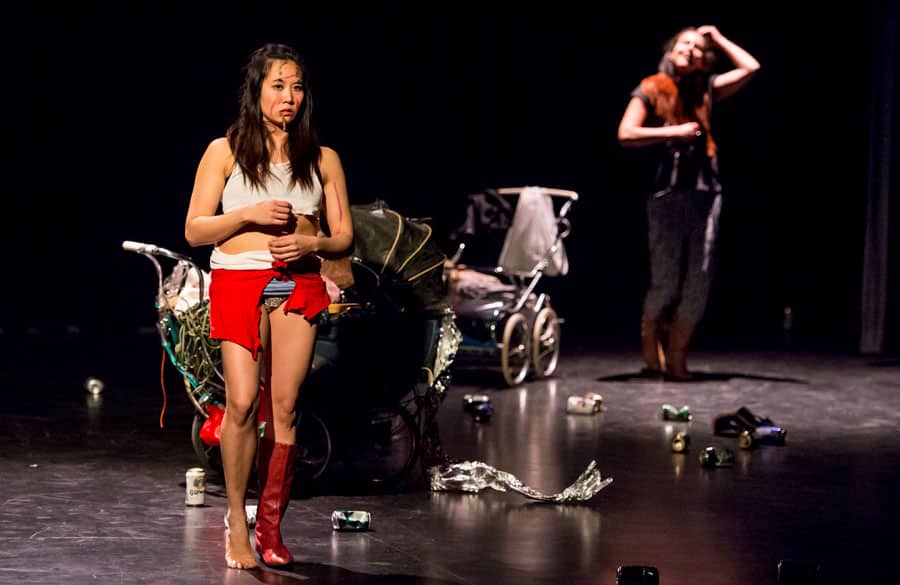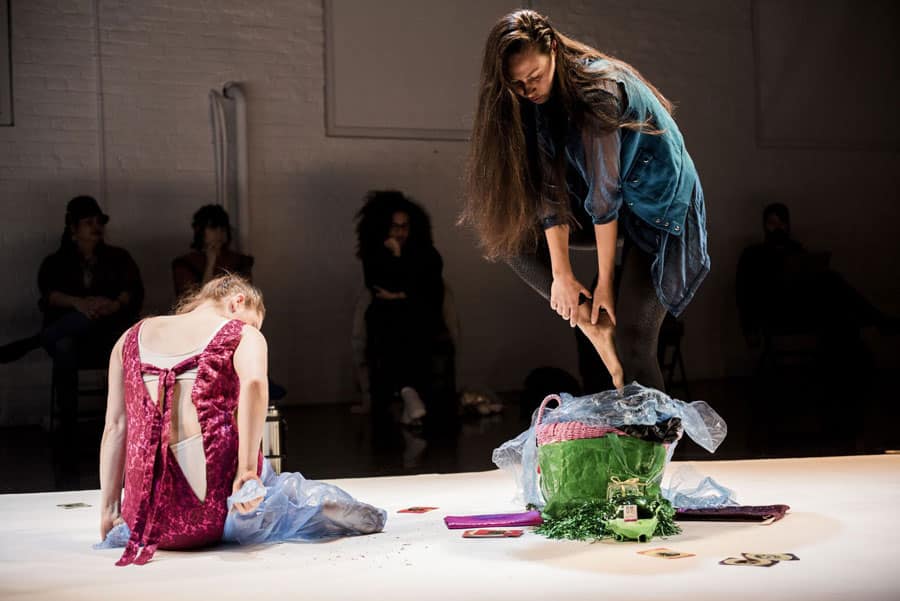Works by Indigenous Canadian artists will feature at this year’s Edinburgh festivals as part of a new programme celebrating indigenous cultures.

Involving the Edinburgh International Festival (EIF), Edinburgh Festival Fringe and Edinburgh International Book Festival in August, it has been put together by Indigenous Contemporary Scene, produced by Onishka Productions.
Kiinalik: These Sharp Tools is coming to EIF’s The Studio for its European debut from 2 to 5 August. Inuk artist Laakkuluk Williamson Bathory and Toronto queer theatre-maker Evalyn Parry will share the stage in a concert, conversation and multimedia performance that examines Canada’s Indigenous history, colonial legacy, politics, feminism and the advancing threat of climate change. The show was winner of the 2018 Dora Award for outstanding new play.
Ojii-Cree dancer and artist Lara Kramer is bringing three works to Fringe venue Summerhall. Running as a chronological progression, exploring the past, present and future, they highlight that to care for the next generation we must look at the past and the cyclical nature of everything being interconnected.

The trio opens with Native Girl Syndrome, a dive into street culture which takes the audience on a dynamic journey of addiction, loss and alienation. The piece is inspired by the experience of Kramer’s grandmother of having migrated from a remote First Nations community into an unfamiliar urban environment as a young woman. It runs from 2 to 4 and 7 to 11 August.
This Time Will Be Different, co-created by Émilie Monnet, is a performance-based installation on the present that denounces the Canadian government’s discourse on Indigenous peoples and offers an inter-generational ceremony to celebrate beauty and survival, running from 13 to 18 August.

Miijin Ki, a word in the Anishnabemowin language which translates as “Eating Land”, is a new work in development where Kramer, along with her collaborators, create non-violent tensions of a future of living and being on the land. It runs from 20 to 24 August.
Two other shows will come to CanadaHub, the Fringe festival’s annual destination for Canadian theatre and culture. Deer Woman is a one-woman play from artists Article 11 about a Blackfoot woman seeking vengeance for the murder of her younger sister and the 1,600 other Indigenous women recorded as missing or murdered in Canada in recent decades. It runs from 31 July to 25 August.
Songs in The Key of Cree is a compilation of tunes written over the past 30 years by Cree-Canadian playwright/songwriter/pianist Tomson Highway, named by Canadian news magazine Maclean’s as “one of the 100 most important people in Canadian history”. They will be sung by Peruvian-Canadian cabaret singer Patricia Cano, accompanied by jazz saxophonist Marcus Ali, with Tomson Highway himself on the piano. It runs at CanadaHub from 31 July to 18 August.
The Edinburgh programme will culminate in Kanata Cabaret Hour – using “Kanata”, the Haudenosaunee word for Canada – a showcase of the many Indigenous artists in Edinburgh over August. The hour will offer up a radical mix of dance, music and live art from Indigenous and Scottish perspectives, at CanadaHub from 21 to 24 August.
At the Edinburgh International Book Festival, Indigenous Contemporary Scene is bringing two performances of words and music under the umbrella, “Songs from the Land”. Sometimes I Speak English on 15 August is born out of indigenous experiences on both sides of the Atlantic. Inuit poet and throat singer Taqralik Partridge performs alongside celebrated Cree cellist Cris Derksen. Scottish musician Inge Thomson, from Fair Isle, will present new works inspired by the landscape there.
In Calling Home, Inuit poet and throat singer Taqralik Partridge will perform with acclaimed Cree cellist Cris Derksen. Tara Beagan, one half of Article 11 and a Ntlakapamux author who has written about the Beothuk human remains at the National Museum of Scotland, and Shetlandic poet Roseanne Watt will both read from their latest works on 16 August.
The programme aims to amplify the voices of Indigenous artists in Canada and highlight the conversation around what it means to be indigenous today. It also serves as an artist-led response to the 2019 UNESCO Year of Indigenous Languages, of which Onishka is a partner, and International Day of the World’s Indigenous Peoples on 9 August.
Émilie Monnet, artistic director of Onishka Productions and Indigenous Contemporary Scene, said: “The programme offers a unique creative opportunity for Scottish and Indigenous artists, performers and writers from Turtle Island, the Indigenous name for Canada and North America, to collaborate with one another, to share their distinct cultural knowledge and to offer representative perspectives on today’s world and the issues Indigenous peoples are facing.”
It is part of a wider initiative, Indigenous Contemporary Scene Scotland, which takes place from July 2019 to September 2020, offering unique spaces for creative exchange between artists of different nations, inciting new collaborations with Scottish artists, and contributing to the greater recognition of Indigenous voices internationally.
